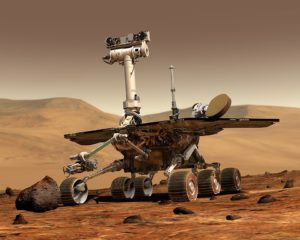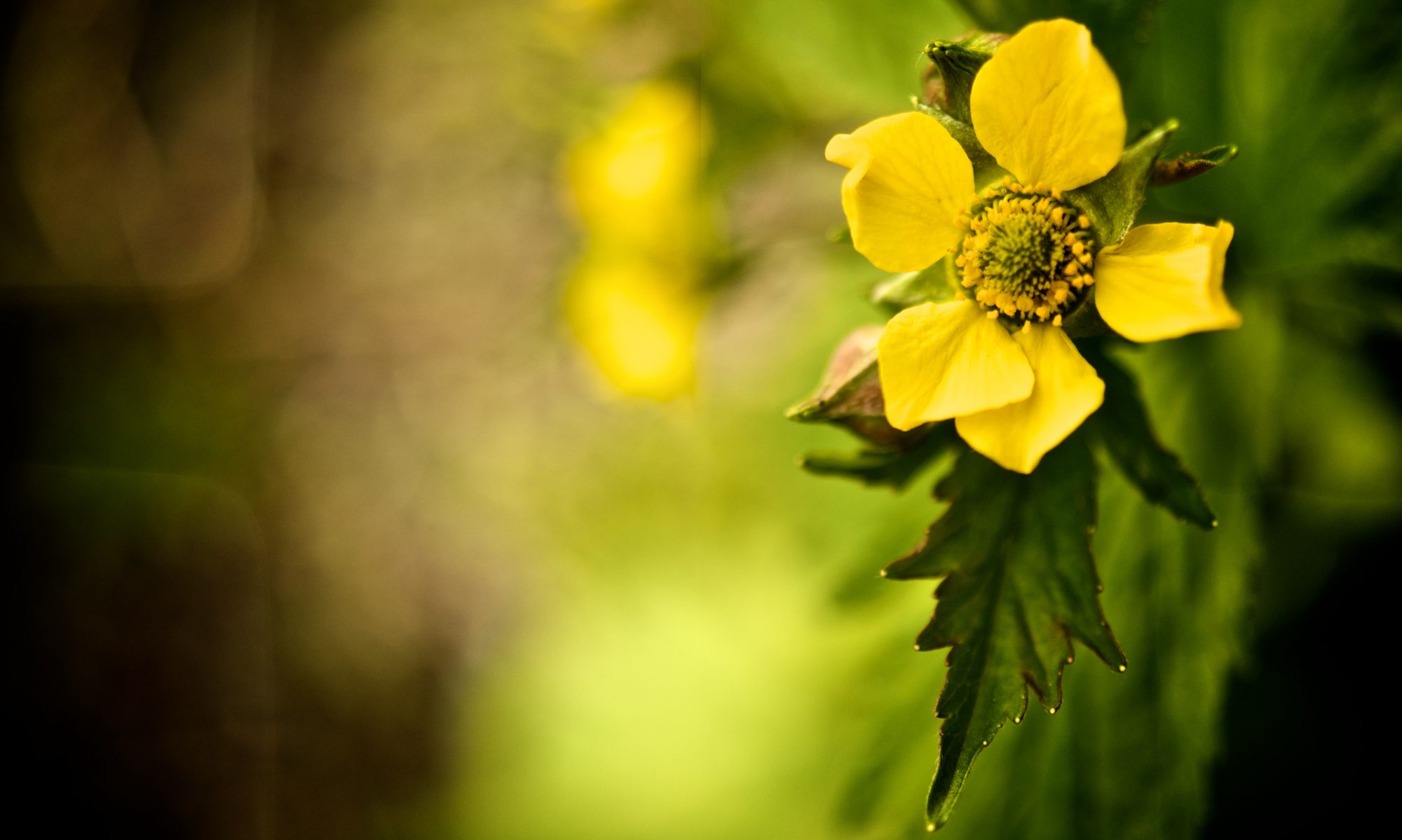 Being an entomologist means that my scientific point-of-view is literally down-to-earth much of the time. But like just about every scientist whom I know, I am completely fascinated by space exploration.
Being an entomologist means that my scientific point-of-view is literally down-to-earth much of the time. But like just about every scientist whom I know, I am completely fascinated by space exploration.
This morning, I read that Opportunity, one of NASA’s Mars rovers, has likely completed its mission. This is a big deal for a number of reasons, and in particular because the mission was only expected to last a few month but has gone on for 15 years. That, in itself, is a major engineering accomplishment. Add onto it all of the amazing research that has been done in that time, and you can see why this NASA mission was a roaring success.
I have, in the past, measured the temporal run of my scientific career in comparison to space missions. Voyager took me through my grade school years and is still going. The Mars Rovers have taken me through most of my postdoctoral and tenure track years. Opportunity launched in July of 2003, right as I was completing my first postdoctoral stint at UBC and was planning on moving to California for my second. Since then I have completed that second postdoc, landed a position at UNBC, and moved through the various professorial ranks.
But Opportunity, like all other space missions, and indeed all other science, is a great reminder that this entire endeavour of discovery is a massive team effort. And for me, hearing the news of Opportunity’s demise this morning (its last message was along the lines of “I’m running out of battery power and the darkness is closing in”) was a reminder for me of all those who I have to thank for helping to get me this far, and for working alongside me in the past and present.
I know that a list like this will never be complete, but I’m going to attempt it because fear of missing someone shouldn’t stop me from thanking these people. Please know that if I missed you, it was not intentional.
Of course some of my biggest thanks go to my mom and dad who encouraged my love of biology from a young age and who have been constantly there through the ups and downs of graduate school, uncertainty about ever landing a job, stress about the tenure track, and the various ups and downs that continue each year. I love you guys and I’m glad that you’re only a phone call or a reasonably short drive away.
Thanks to Dr. Gerrit Voordouw at the University of Calgary who took me into his lab for a couple of summers during my undergraduate zoology degree. That research experience, including my first publication, helped me to make my choice to work towards a career in the business of discovery. What an amazing opportunity!
Thanks to all of my undergraduate professors, and to a few in particular. Dr. Robert Barclay taught me how to integrate basic information into complex ideas in an animal behaviour course and whose lecturing chalk skills are phenomenal. Dr. Robert Longair and Dr. Ralph Cartar showed me the world of invertebrates and stamped my heart with a desire to learn more about them. Dr. Elisabeth Dixon told us about chemical ecology as a bit of an aside in her organic chemistry course one day, and at that moment sparked my lifetime fascination.
Thanks to Dr. John Borden, my Ph.D. advisor. John took a chance on an untested student straight out of his undergraduate degree. He told me that a Ph.D. is as much a process of maturation as it is of discovery. He provided guidance and funds and a continual stream of great ideas. He taught me how to be organized, how to prioritize multiple tasks, how to give an effective presentation, how to write a publication-worthy paper (depleting many red pens in the process), and how to approach the scientific endeavour with a continual smile. John, I truly appreciate your continued mentorship after all of these years.
Thanks, also, to a bunch of other academic mentors from my time as a Ph.D. student at Simon Fraser University, whether as graduate course instructors, or as instructors in courses that I TA-ed, or in other contexts. These individuals include Dr. Gerhard Gries, Ms. Regine Gries, Ms. Tammy McMullan, Dr. Mark Winston, Dr. Larry Dill, Dr. Bernie Crespi, Dr. Elizabeth Elle, and Dr. John Webster. You each taught me important things about natural history, about surviving in academia, about the practice of teaching, and about professionalism.
Thanks to Dr. Jörg Bohlmann for getting me involved in great projects that truly stretched my thinking and my technical capabilities during my postdoctoral time in his lab at UBC. Thanks also for all of our many past and ongoing collaborations, for our friendship, and for teaching me about approaching both basic and applied science with vigor, passion, professionalism, and kindness.
—We pause here for Opportunity’s launch, 7 July 2003.—
Thanks to Dr. Steve Seybold who gave me the opportunity to experience science in another country and to see how things operate outside of academia. Thanks also to Steve for demonstrating a deep commitment to getting the details correct and for exemplifying a love of forest natural history. Thanks to Dr. Chris Fettig who kept me going in non-host volatile work, who is an example of professionalism, and who continues to be a supportive colleague. Thanks to both Steve and Chris for their ongoing, valuable interactions that help to stretch my thinking and for their friendship.
Thanks to Dr. Staffan Lindgren who noticed my talk at a WFIWC meeting in San Diego and suggested that I apply for an open position at UNBC. Thanks, also, to Staffan for the years of mentorship that continue to this day even though he has retired to somewhat warmer climes. I miss you being here at UNBC, Staffan, but I’m glad that we get to see each other on occasion.
Thanks to UNBC for hiring me and for the many opportunities that I’ve had here over the past 13 years. Thanks to Dr. Keith Egger who was the Program Chair when I arrived and helped me to get my feet on the ground. Thanks to Dr. Kathy Lewis who has been the Program Chair for the majority of my time here at UNBC and who has been an amazing example of gracious, kind, and fair leadership. And thanks to my many colleagues at UNBC who have been great mentors and friends through the inevitable ups and downs (mostly ups!) of institutional life.
Thanks to my colleagues beyond the walls of UNBC who have encouraged me, collaborated with me, written proposals with me, published papers with me, organized symposia with me, tweeted with me, and had a beer or two with me. While not without faults (let’s work on those!) our community of entomologists and ecologists is something special.
And some of my biggest thanks to the many students, postdocs, and technicians whom I’ve worked with over the years. Some of you influenced my thinking (and continue to do so!) during my undergraduate, graduate, and postdoctoral years. Many of you have worked in my program or in the programs of close colleagues. Most advances in science happen because of hard work by those in the trenches, and I’m thankful to each of you with whom I’ve interacted with in various ways – as a peer, as a mentor, as an examiner…
And finally my definite biggest thanks to my wife, Joyel. We were married about a month after the launch of Opportunity, and we moved from BC to California almost immediately thereafter. I know that it’s not always easy being the spouse of an academic with the uncertainty about the next job, the moves to who-knows-where for said jobs, and generally weird (but thankfully generally flexible) schedules. There’s no way I could do the work that I do without your support.
I am certain that I’ve missed some people here, and this blog post will likely grow with edits over the years.
While Opportunity is now cold on Mars, my heart was warmed today thinking of all of you who have influenced me during its time of exploration.
